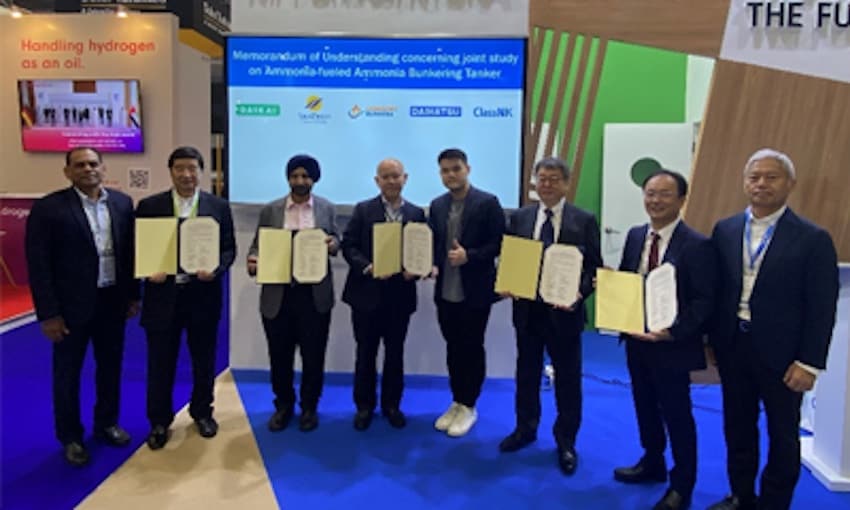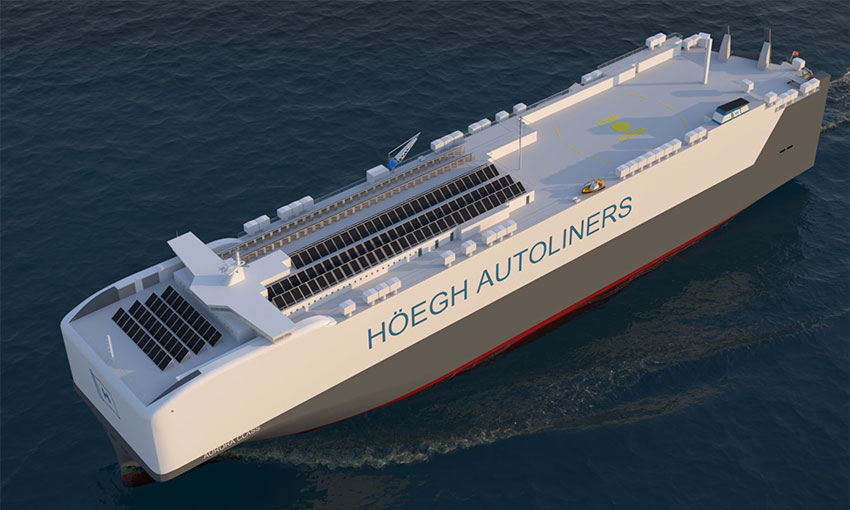CLASSNK is one of five organisations setting out to develop an ammonia-fuelled ammonia bunkering tanker for the port of Singapore.
ClassNK, Consort Bunkers, Daihatsu Diesel, Daikai Engineering and SeaTech Solutions International entered a memorandum of understanding to study the concept design of the bunkering tanker.
The parties signed the MoU with a representative from the Maritime and Port Authority of Singapore (MPA) as a witness.
The five parties intend to pool their expertise under the MoU to achieve an approval in principle from ClassNK.
Consort Bunkers provides bunkering services in Singapore, Daihatsu Diesel developes alternative fuel engines (including for ammonia), Daikai Engineering sells machinery and marine equipment and SeaTech Solutions International designes ships equipped with alternative fuel engines.
“It is our great pleasure to work together with prominent partners to fill in the pieces for advancing decarbonisation of shipping,” ClassNK executive vice president Hayato Suga said.
“ClassNK will strive to fulfill its role, reviewing the safety and integrity of the developed design in accordance with our rules related to ammonia transport and its use as fuel, and hope to materialise the outcome as our AiP.”
MPA assistant chief executive (operations) Captain M Segar said MPA welcomes studies, pilots, and collaborations that contribute to the maritime sector’s decarbonisation efforts.
“Joint studies such as the one under this MoU are useful in bringing together the collective expertise and experience of various leading stakeholders to deepen the industry’s knowledge and confidence in handling the new future fuels, and to accelerate the development of future fuel solutions to meet the revised IMO GHG emission ambitions for international shipping,” he said.
And Yoichi Hayata, director of the technical management division at Daihatsu Diesel, said the use of ammonia as a zero-carbon fuel has been attracting attention, but there are issues with combustibility and safety.
“We have already conducted basic tests on ammonia, and have obtained knowledge on combustion characteristics, trends in exhaust gas emissions, precautions for handling, etcetera.
“Utilising this knowledge, we will join forces with MoU member companies and contribute to the co-operation in acquiring ammonia bunkering vessel AiP and the development of GHG reduction technology.”
ClassNK highlighted the need to develop bunkering vessels that can transport and supply ammonia to other ships while safely using it as fuel. It noted ammonia-related risks such as its toxicity to humans and corrosiveness to materials.





